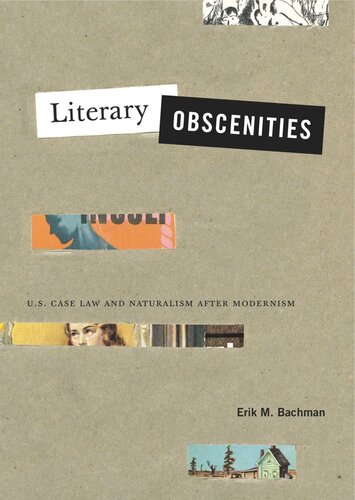

Most ebook files are in PDF format, so you can easily read them using various software such as Foxit Reader or directly on the Google Chrome browser.
Some ebook files are released by publishers in other formats such as .awz, .mobi, .epub, .fb2, etc. You may need to install specific software to read these formats on mobile/PC, such as Calibre.
Please read the tutorial at this link: https://ebookbell.com/faq
We offer FREE conversion to the popular formats you request; however, this may take some time. Therefore, right after payment, please email us, and we will try to provide the service as quickly as possible.
For some exceptional file formats or broken links (if any), please refrain from opening any disputes. Instead, email us first, and we will try to assist within a maximum of 6 hours.
EbookBell Team

0.0
0 reviewsThis comparative historical study explores the broad sociocultural factors at play in the relationships among U.S. obscenity laws and literary modernism and naturalism in the early twentieth century. Putting obscenity case law’s crisis of legitimation and modernism’s crisis of representation into dialogue, Erik Bachman shows how obscenity trials and other attempts to suppress allegedly vulgar writing in the United States affected a wide-ranging debate about the power of the printed word to incite emotion and shape behavior.
Far from seeking simply to transgress cultural norms or sexual boundaries, Bachman argues, proscribed authors such as Wyndham Lewis, Erskine Caldwell, Lillian Smith, and James T. Farrell refigured the capacity of writing to evoke the obscene so that readers might become aware of the social processes by which they were being turned into mass consumers, voyeurs, and racialized subjects. Through such efforts, these writers participated in debates about the libidinal efficacy of language with a range of contemporaries, from behavioral psychologists and advertising executives to book cover illustrators, magazine publishers, civil rights activists, and judges.
Focusing on case law and the social circumstances informing it, Literary Obscenities provides an alternative conceptual framework for understanding obscenity’s subjugation of human bodies, desires, and identities to abstract social forces. It will appeal especially to scholars of American literature, American studies, and U.S. legal history.